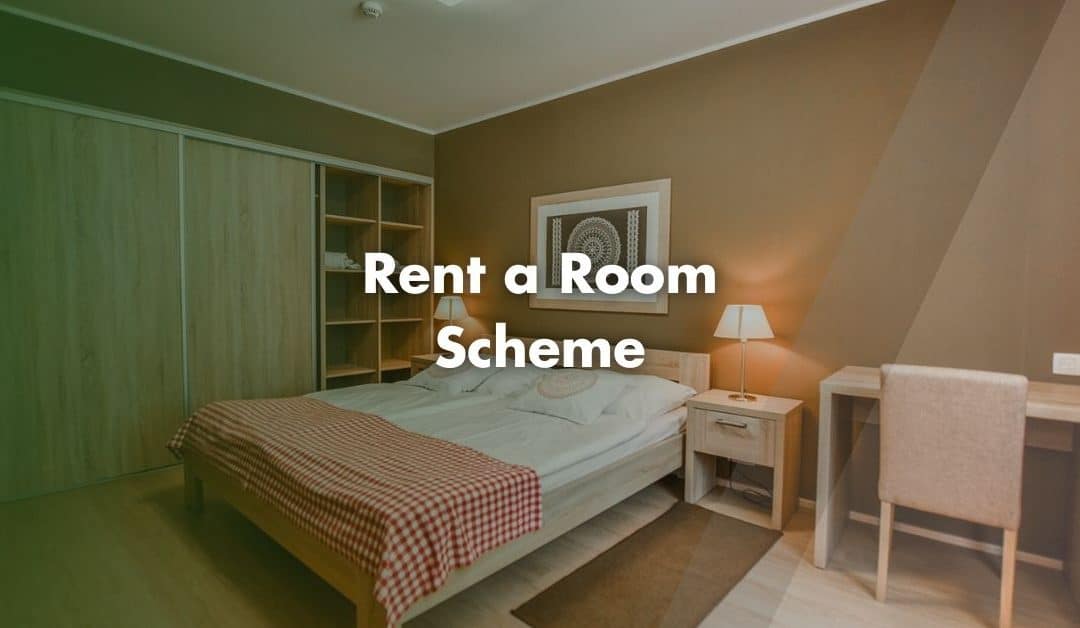You can earn up to £7,500 per year tax-free from letting out furnished accommodation in your home, with the Rent a Room Scheme. If you share the income with someone else, such as a spouse or partner, then you would get £3,750 each.
Despite the name, you can rent out more than just a room. You can let out any part of your home, as long as it is not a self-contained flat and it remains part of your main residence. You must also furnish the space and live in the property while renting it out.
Who Can Use the Rent a Room Scheme?
You use the Rent a Room Scheme if:
- You rent out a furnished room to a lodger in your main home
- You run a guest house or B&B in your main residence
- You are a tenant and have written permission from your landlord
- You have approval from your mortgage provider and home insurance company (if you own your home)
You cannot use the Rent a Room Scheme if:
- The room is unfurnished
- The space is used for business purposes, like an office
- The area is a self-contained flat
- You live abroad and rent out your UK property
How Does the Rent a Room Scheme Work?
If your rental income is less than £7,500 (or £3,750 each if shared), the tax exemption is automatic. You do not have to declare anything to HMRC and you will not pay tax on that income.
If your earnings from renting out a room exceed the £7,500 threshold, you must complete a Self Assessment tax return. Now, you have two options:
1. Opt Into the Scheme
Claim the tax-free allowance of £7,500 and pay tax only on income above that amount. This method is simple but does not allow you to deduct expenses.
2. Opt Out of the Scheme
Declare your full rental income and deduct allowable expenses and Capital Allowances. You will then pay tax on only your net profit.
To decide which option is best, calculate your total expenses and compare both methods. Generally, staying in the scheme makes more sense if your expenses are less than £7,500.
What Counts Towards the £7,500?
All payments from your lodger count towards the tax-free threshold. This includes:
- Rent
- Payments from cleaning or laundry
- Charges for meals or other services
If your total income exceeds £7,500 in a tax year, you must declare it.
How to Opt Out of the Rent a Room Scheme
If you decide the standard rental income method suits you better, you must notify HMRC. You can do this on your Self Assessment tax return or in writing. The deadline is 31st January following the end of the tax year in question.
You can switch methods each year, but you must explicitly inform HMRC each time via your tax return.
How the Scheme Affects Your Benefits
Housing Benefit
The impact depends on whether your lodger is a boarder (includes meals) or a sub-tenant (no meals).
- Boarders have £20 a week ignored, plus half of the remainder
- Sub-tenants have only £20 ignored, while the rest is income
Council Tax
If you currently receive a single-person discount, you will lose it once a lodger moves in.
Universal Credit
Income up to £7,500 is usually disregarded, but you should still report it to the DWP. If your income exceeds this amount, the DWP will assess how it affects your benefits based on your individual circumstances.
Preparing to Take In a Lodger
Before letting out a room, be sure to:
- Confirm your mortgage allows subletting
- Update your home insurance provider
- Get your landlord’s written consent (if you rent)
- Furnish the room adequately
- Keep records of payments and services
Contact Us
We are not just accountants; we are Chartered Accountants with one of the most reputable and premium accounting bodies. We are registered and regulated by ACCA; so you can rest assured that you are in good hands. Knowing this, don’t hesitate to get in touch with us if you require assistance: Pi Accountancy | Contact Us

